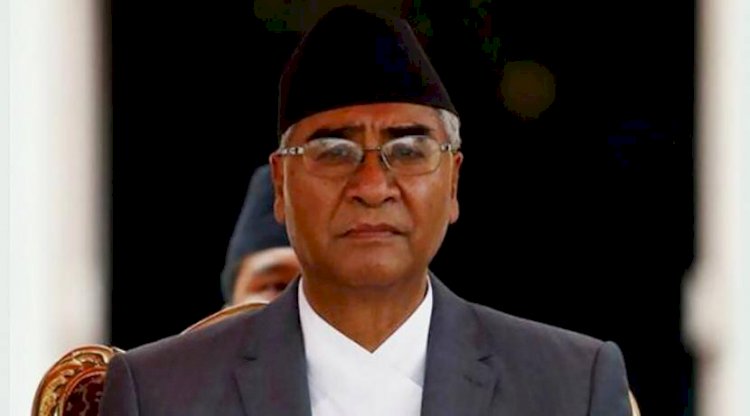Why Sher Bahadur Deuba As Nepal's New PM Is Good News For India
For Printing Download Epaper from files section from bottom of this page

Sher Bahadur Deuba leader of the Nepali Congress will be sworn in as the new Prime Minister of the country. What will a Deuba government mean for India? Will he also play the China card against India, like his predecessor Khagra Prasad Sharma Oli whenever he was in trouble politically at home? Oli had used the China card effectively during elections. He had also started a cartographic war with India at the height of the Ladakh face-off between India and China, to outfox those who challenged him inside the ruling Communist Party of Nepal. But in the end, Oli was turning more and more towards India and using the Hindu card.
Despite all his machinations prime minister KP Sharma Oli with the help of loyalist President Bidhya Devi Bhandari had to finally quit after the Supreme Court verdict. A five-member Constitutional Bench of the country's apex court reinstated Nepal's lower house while delivering a verdict on a writ petition filed by 146 united opposition lawmakers. Not just that, but the Court directed the President to appoint Deuba as the next prime minister. He would have to prove his majority in the House by August.
Oli will certainly try his best to ensure that Deuba loses the confidence vote, but as of now, the wily former prime minister is on the back foot. Squabbling among Nepal's fractious politicians will continue for some time, but there will be no large-scale unrest as Nepal witnessed during the civil war when the Maoists tried to overthrow the monarchy through violence.
Deuba, the President of the Nepali Congress, has been prime minister at least five times. The Nepali Congress is regarded as a party close to India. The Indian establishment knows him well, and he is unlikely to rock the boat.
On Tuesday, SherBahadurDeuba will become Nepal's prime minister for the fifth time in 20 years. He has led the country through the reign of King Birendra, after King Gyanendra's coup in 2005, as well as in interim governments after the peace accord in 2006.
Deuba will have to prove that he has the confidence of the House within one month, after which he will head an elected government. If he fails to get a majority, which is a possibility, there will be early polls in November - which was what Oli was preparing for.
The writ filed by 146-lawmaker strong opposition alliance was among the writ petitions that had moved the apex court demanding the reinstatement of the lower house along with the appointment of Nepali Congress President SherBahadurDeuba as the Prime Minister for staking claim to the post according to Article 76 (5) of the Constitution.
Hours after the Supreme Court overturned Prime Minister KP Oli's decision to dissolve the House of Representatives and issued an order to the Office of the President to appoint Nepali Congress President SherBahadurDeuba as the next prime minister, the oppositionalliance launched talks for government formation.

 Active Times
Active Times 

















